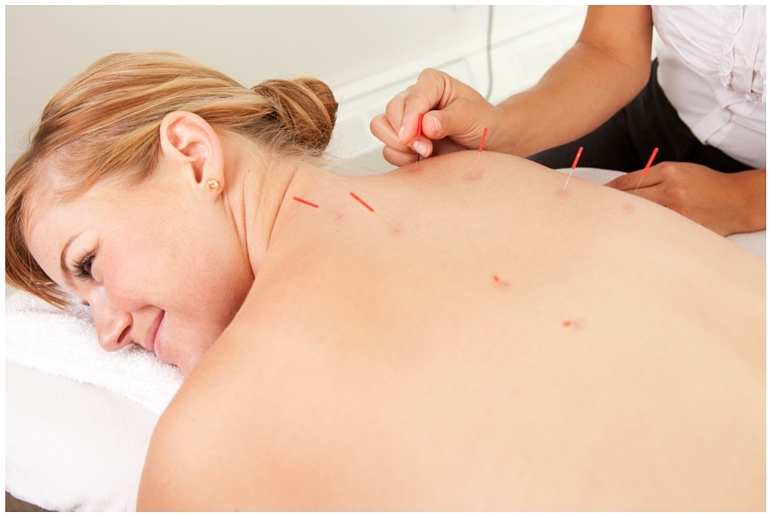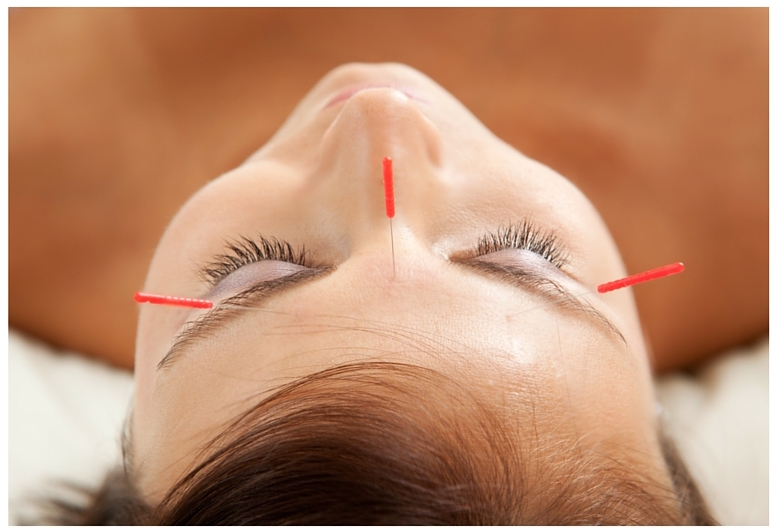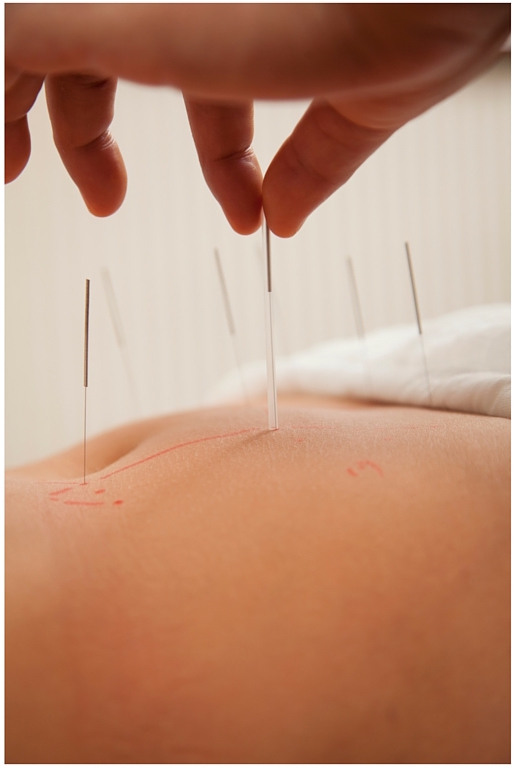On its own, acupuncture can be seen as an alternative way of treating fertility problems. It is also often seen as a complementary therapy to modern fertility treatments. Used as a complementary form of therapy for women undergoing other fertility treatments, acupuncture has been proven to be especially beneficial.

I had the chance to ask Kristin Greenacre, a Registered Acupuncturist, licensed by the College of Traditional Chinese Medicine Practitioners and Acupuncturists of Ontario (CTCMPAO), some questions about acupuncture and infertility. Here are her answers.
How does acupuncture work?
Acupuncture is a branch of Traditional Chinese Medicine (TCM), a healing system that operates on the belief that the body is constantly seeking balance. As such, acupuncture supports the inherent intelligence of the body to heal itself. Energy (or Qi) circulates continuously along pathways throughout the body. In a healthy person, energy flows freely along these channels and you feel balanced, healthy and strong. When energy becomes deficient, stagnant or blocked, it causes pain, depression and disease. As an acupuncturist, it’s my job to determine where that energy is blocked, and how I can (using sterile, single-use, ultra-fine needles) relieve the symptoms of disease or imbalance in the body by stimulating specific points.
How does acupuncture help with infertility?
Common menstrual problems like short cycles, cramping, clotting, and PMS are symptoms of underlying imbalances that can decrease your chances of getting pregnant. TCM helps to identify and correct your specific issues to build a healthy menstrual cycle that maximizes your chances of getting pregnant. It looks past the standard diagnoses of infertility toward the underlying health factors that may be causing them. By identifying why you aren’t getting pregnant, TCM can help you make progress naturally.
Most people think of infertility as a diagnosis like poor egg quality, insufficient uterine lining, low progesterone, high FSH levels, PCOS, or endometriosis. There is often much more to the story. In many cases these diagnosed conditions result from underlying disease states like diminished hormone function, irregular menstrual cycles, problematic body temperature, and others. Modifiable lifestyle factors like hydration, sleep, stress, and diet can also have a tremendous impact on natural fertility. By understanding your body in these terms, we can quickly gain a new understanding of why you are having difficulty getting or staying pregnant.
These underlying issues can be dramatically improved through a natural wellness approach. By integrating acupuncture treatments with recommendations for modifying lifestyle behaviours, it is possible to regulate hormones, menstrual cycle and body temperature over a few months, ultimately boosting your overall fertility and chances of conceiving. It usually takes three menstrual cycles to make a significant impact on fertility.
Top 10 ways that acupuncture promotes fertility:
* Reduces stress & promotes relaxation
* Regulates hormones – better quality eggs
* Improves ovarian function – more follicles, better egg production
* Improves ovarian blood flow, increasing ovarian response
* Strengthens the immune system
* Increases blood flow to the uterus, improving the endometrial lining
* Improves sperm count, motility, morphology
* Lessens side effects from hormonal treatment
* Decreases uterine contractility at implantation
* Decreases the chance of miscarriage

I’m doing IUI/IVF, how can acupuncture help me?
If you are using any assisted reproductive technologies (ART), acupuncture can help to optimize your chances of having a successful outcome. The goal of acupuncture is to improve overall health and fertility so you have the best chance of conceiving whether you’re using ART or not. Recent clinical studies show that combining acupuncture with IVF/IUI can reduce stress, increase blood flow to the uterus and ovaries, regulate fertility hormones, promote healthy follicle development, minimize medication side effects and optimize chances of implantation and full-term births.
What can I expect at an acupuncture treatment?
Acupuncture starts with a personalized assessment to help us understand the lifestyle and cycle challenges that are keeping you from getting and staying pregnant. Whether you’ve been diagnosed with high FSH, as an IVF “poor responder”, had frequent miscarriages, or suffered unexplained infertility, we want to discover why. Once we’ve identified your specific challenges, we make a plan to overcome them. Your treatment plan will include diet and lifestyle recommendations, stress reduction techniques, and of course, acupuncture!

I also thought that as someone that has received acupuncture treatments for fertility in 2013 while going through treatment at the Ottawa Fertility Centre. I felt I could give an account of my own experience.
Whenever someone asks me if I would recommend acupuncture as a treatment for infertility, I would say that I would recommend it along with being treated at a fertility clinic and only if your attending doctor approves. Fertility treatments can be a very sensitive, scientific thing, so making sure that your attending doctor is aware that you are seeking a complimentary treatment and agrees that it will be beneficial to you is very important.
At the clinic I went to, after my initial consultation. I was scheduled for acupuncture treatments three times a week as well as a few herbal supplements that would compliment my treatment. When I would attend my treatment appointments there were always several clients being treated at the same time in the same room, we were not all being treated for infertility, some clients were being treated for sore shoulders, headaches etc.
One at a time the acupuncturist would apply the needles to each person. Once everyone had their needles applied, it would be time to lie back in an antigravity chair while soothing music played and the lights were lowered. Each treatment appointment would last about 20 to 30 minutes, 20 minutes for the acupuncture treatment and sometimes a 10 minute follow up appointment with the acupuncturist would occur to check in and see how treatment was going.
Many people who receive acupuncture treatment say that they find it relaxing. There is also the belief that the needles can be painful. While receiving acupuncture, I did find it a little relaxing. I also noticed that the needles did not hurt at all and all though I was consistently receiving treatment for infertility the needles were put in different places on my body at every visit.
I received acupuncture treatments for about 5 months before I decided to stop and focus on my treatments at the fertility centre. Two months later I was pregnant with my daughter.
I am not sure if my acupuncture treatments were interfering with my medical treatments at the fertility centre and stopping acupuncture caused my medical treatments to be successful, or if it was a fluke. That being said, despite my experience I would never deter someone from trying acupuncture for fertility if that’s what they feel is right for them to do.
Each individual’s fertility journey is unique, and I feel when you are on your journey you need to take all of the information you receive and make the decision that works best for you regarding treatment and complimentary therapies. It’s not one size fits all when it comes to infertility treatments.
Thanks once again to Kristin Greenacre for taking the time to answer my questions.
Kristin Greenacre is a Registered Acupuncturist, licensed by the College of Traditional Chinese Medicine Practitioners and Acupuncturists of Ontario (CTCMPAO). Her primary focus is women’s health – regulating menstruation, promoting fertility, supporting healthy pregnancies, and managing menopause symptoms naturally. Kristin uses acupuncture and supporting modalities, such as moxibustion & cupping, to promote natural healing. Read more or book online at www.greenacreacupuncture.com.

Leave a Reply